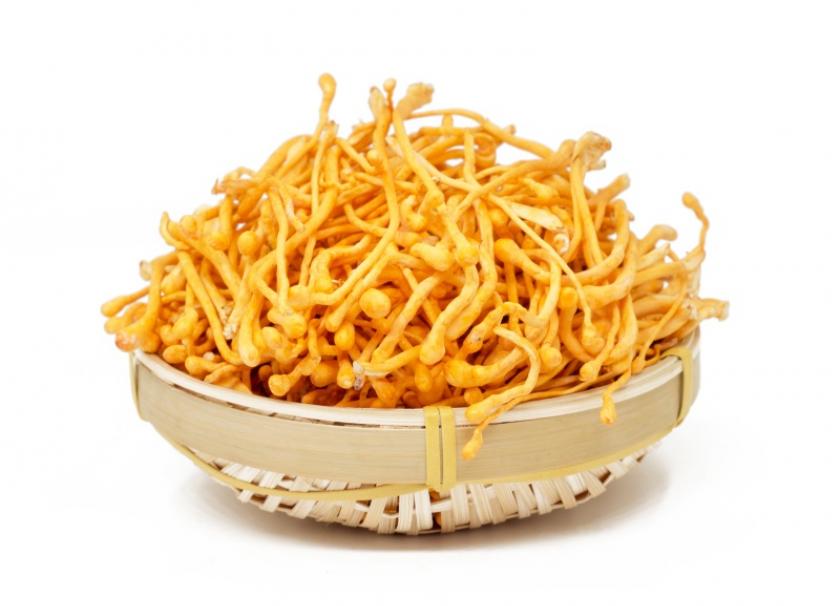
Mushrooms for wellness
You may have heard about the fascinating discovery that trees can communicate with each other. What’s the secret? The mycelia - tiny strands of fungus - in the soil form a vast underground network through which trees send chemical signals to their neighbors.
The mycelia differs from the fruiting body of the mushroom, which is the reproductive component that contains spores and is thought to be higher in Beta Glucans.
If fungus can do that for trees, what benefits can we as humans get from mushrooms? Mushroom teas and other fungal supplements have become more widespread and mostly used for boosting the immune system.*
Lucky for us in the Pacific Northwest, we have access to some of the best mushrooms in the country - in fact, many of the mushroom products we offer are wild-crafted right here in Oregon!
Below is a list of some of the most common medicinal mushrooms and the benefits they may offer to the individual.
As with all supplements, check with your doctor before you start using any medicinal mushroom products. Some mushrooms may have adverse interactions with other medicine, or come with unwanted side effects.
Reishi
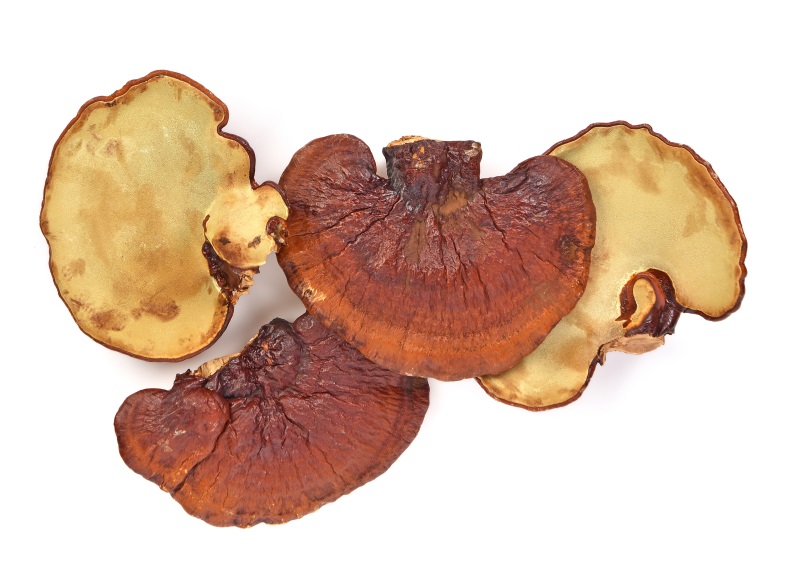
This mushroom has been revered for centuries in Asia. Historically it is a very rare mushroom to find in the wild - scientists estimate that out of every 10,000 trees where reishi could grow, you’ll only find three specimens. Thankfully, the mushroom can now be cultivated on a larger scale using organic substrates.
Generally, reishi is considered an immune system booster and provides overall wellness support*, promoting cardiovascular system health* and the body's ability to adapt to stress*.
Raw or dried reishi can be boiled into a tea. Most reishi supplements come in a tea, tincture or powder (encapsulated or loose) form.
Chaga
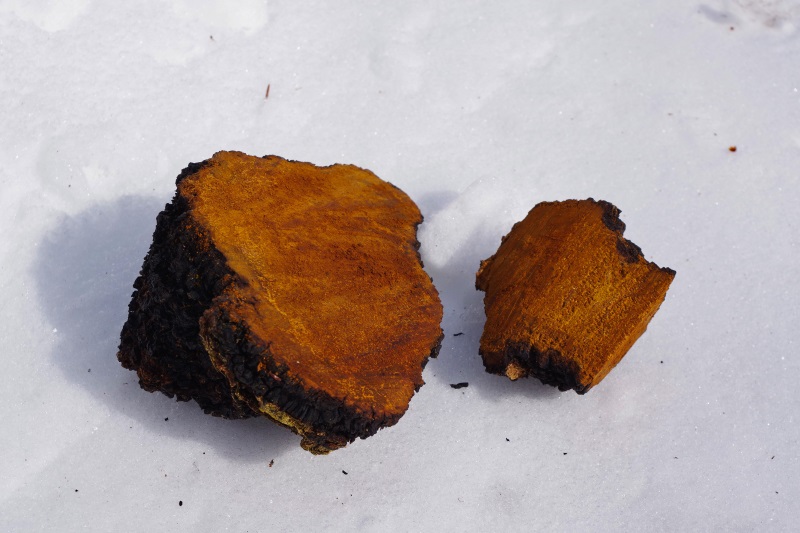
Chaga may not be the most beautiful mushroom on this list, but it has one of the oldest histories. Chaga is mostly found growing on birch trees (which is why it has such a long history in Russia), though it grows on other types of trees, as a big ‘conk’ growth on the outside of the tree. Commercial cultivation of chaga has been successful; however there have been chemical differences observed between wild and cultivated varieties.
Generally, chaga is known to be filled with antioxidants and is an overall immune system booster*.
Chaga is powdered and taken as a tea (the taste is often compared to an earthy coffee), or consumed in a capsule or tincture form.
Cordyceps
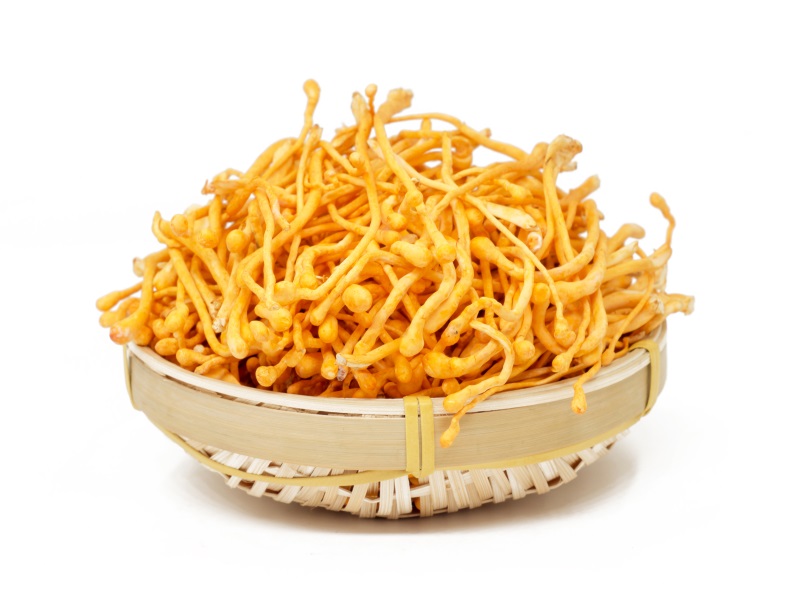
This is the most ‘sci-fi’ of all the mushrooms: several of the 400+ species are actually parasitic. Some modern cordyceps cultivation is a vegan process without needing any living hosts. Cordyceps (Cordyceps militaris) has been traditionally used in Asia for strenuous, high altitude activities and as an immune tonic.* Physical fitness enthusiasts and professional athletes have discovered that cordyceps may have the effect of increased oxygen uptake, supporting higher endurance levels.* People have also found that cordyceps supports healthy libido* and kidney function*.
Cordyceps is consumed traditionally as a raw, dried supplement to soups or stews. In powdered form it is taken as a tea, or in capsules or tincture form.
Lion’s Mane
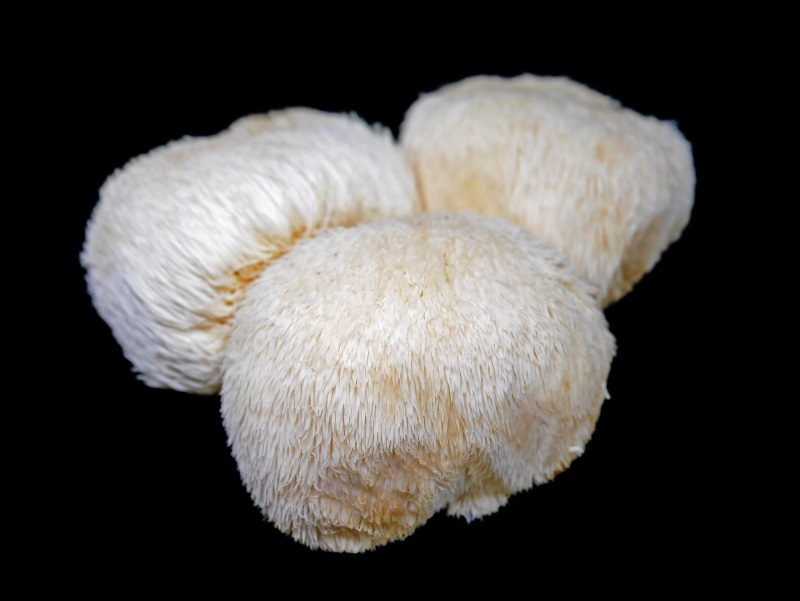
This is one of the most unique looking mushrooms: long tendrils hang from the main fruiting body, creating hundreds of mushroom 'icicles.' This bushy appearance gives the mushroom its common name.
Lion’s mane has been found to be helpful in the following ways: mental clarity, focus and memory in aiding overall cognitive function*; provides immune and nervous system support.*
Lion’s mane is most often consumed as a powder in tea or capsule form, or in a concentrated, standardized extract.
Turkey Tail
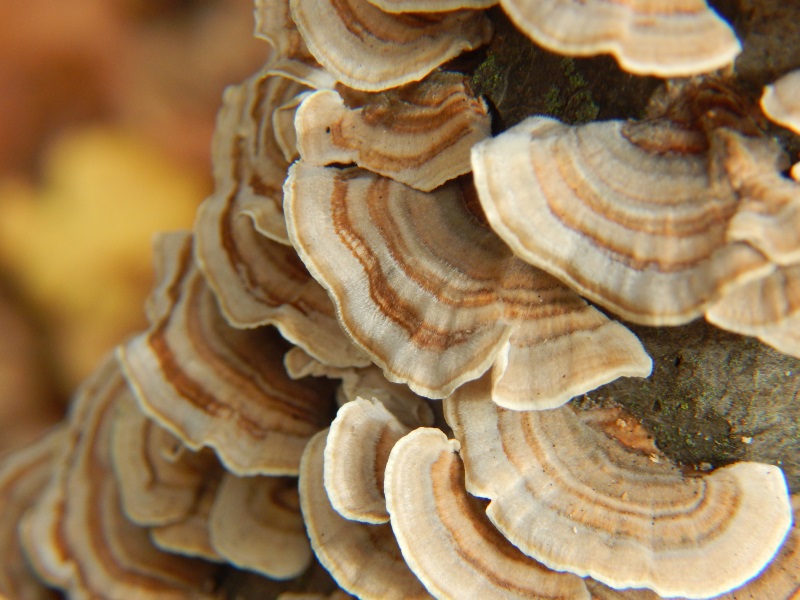
This pretty mushroom is named after the resemblance of the fruiting body to a wild turkey’s tail. Research shows this mushroom has been used medicinally since around 1368 by the Ming Dynasty.
Turkey Tail is an excellent source of cellular nutrients*, providing immune system support.*
Turkey tail is edible but quite chewy; most often it is consumed as a tea, or powdered capsule form.
Other beneficial mushrooms worth exploring:
Maitake
Enokitake
Shiitake
*These statements have not been evaluated by the Food and Drug Administration. This product is not intended to diagnose, treat, cure or prevent any disease.
More Co-op News
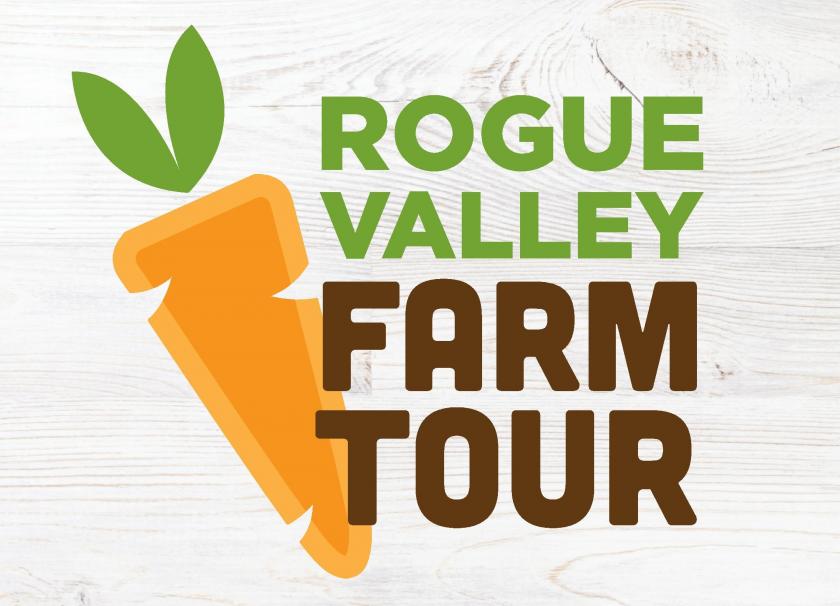
Farm Tour on the Shelves
The Farm Tour shines a spotlight on Southern Oregon - it represents the full range of products grown in the Rogue Valley. The Farm Tour isn't until July 14, but here's a list of tour activities for participating farms that are also on the shelves at the Ashland Food Co-op. Get an early taste of quality local goods!

Planning for Summer... and Smoke
By Emile Amarotico, General Manager
If we are lucky, we’ll only have another seven week smoke intrusion this summer. If we are not, we could be the next Paradise. In less than 13 hours, last November’s Camp Fire wiped out nearly 19,000 structures and more than 80 lives. With community help, we were able to raise over $14,000 to support Chico Natural Foods Co-op’s efforts to feed some of the nearly 20,000 displaced Paradise residents.

The Co-op's "Secret Garden"
Did you know the Co-op employees have a small garden on our campus? Planning and management falls on our fantastic Co-op volunteer: Henry Herting.
Below, Henry shares some background on the garden, what it’s used for, and some additional tales from over the years.
Originally, the need for a kitchen garden arose from having a kitchen classroom in which culinary classes were being held. Visiting chefs have always been invited to use the garden for any ingredients they may have forgotten or items they could use as garnish for their dishes.

Sustainable Ashland Food Co-op: You are the key!
By Steve Bowman, AFC Board Director
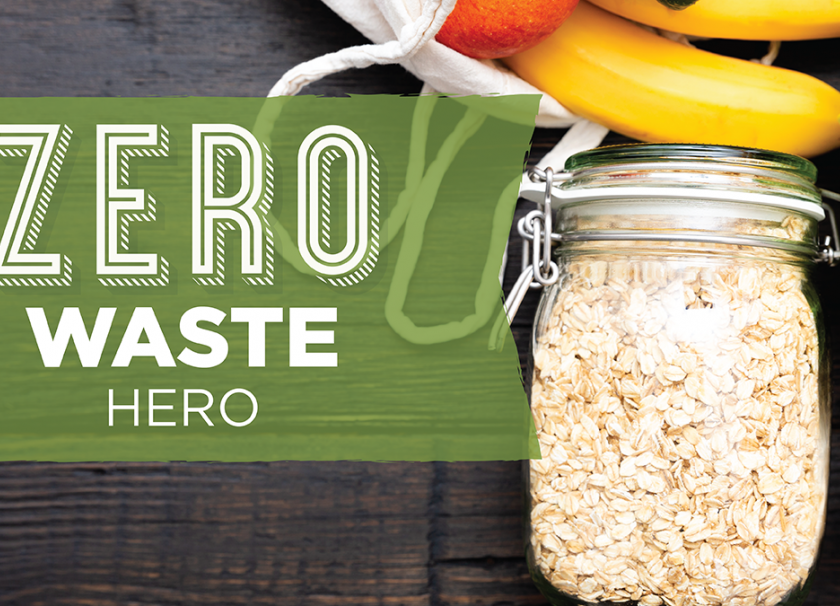
Tips for a Sustainable Kitchen
By Mahlea Rasmussen, Education Coordinator
Outside of work I spend a lot of time in the kitchen. I find it a soothing space to create nourishing meals and lasting memories. I find it essential to be as eco-friendly as possible and a few changes can transform your kitchen into a sustainable center of your home.
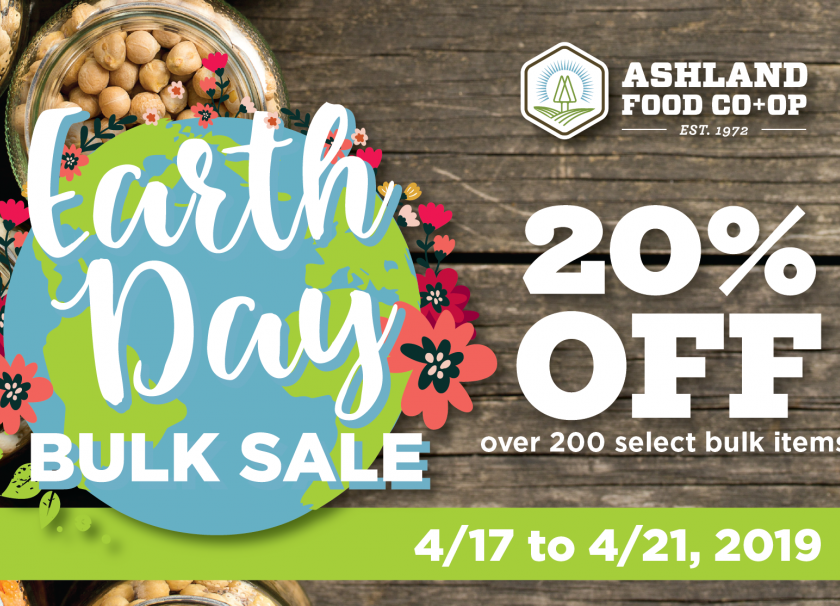
Earth Day Bulk Sale! April 17-21
Save money while working towards a more sustainable shopping experience! The Co-op bulk department is a great "first stop" for your grocery lists - everything from hummus mix to local honey to pet food is available. Plus there's less waste, all the way from shipping to ended up in your shopping cart.
Check out a quick tour below:

Film festival giveaway
Enter your name and email below to be entered to win two film vouchers for the 2019 Ashland Independent Film Festival.
No purchase necessary. Giveaway is not endorsed or sponsored by AIFF. US residents only. Entry will be closed at 5pm PT on Monday, April 15.

The state of plastics
Many Co-op owners and shoppers have shared their interest in reducing plastic usage in the store. From bioplastics, to compostable plastics to recycling options, the Ashland Food Co-op continues to research what works best as we move towards our goal of being a zero waste store. Here is where we stand.
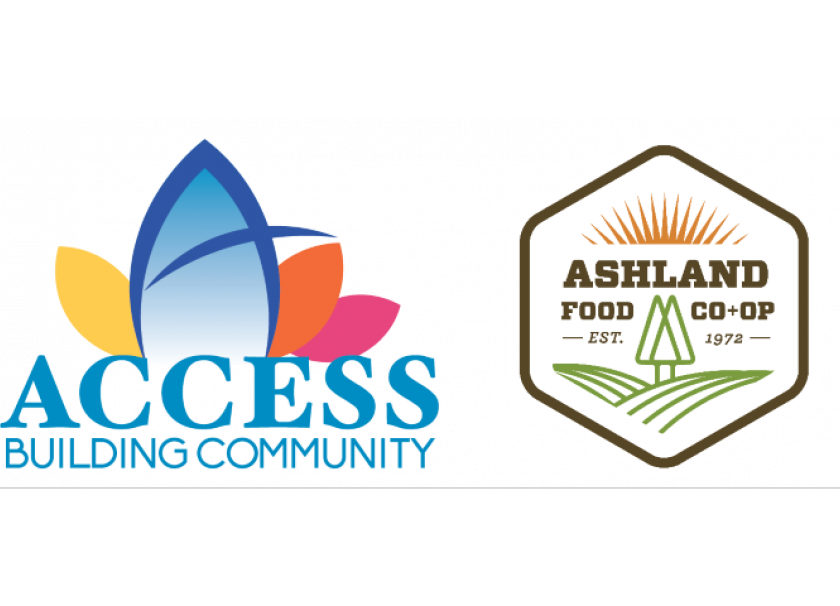
Ashland Food Co-op Celebrates 20-year Partnership with ACCESS
We are proud of a partnership with ACCESS that has benefited the community immensely over the past twenty years. Read on for more about the partnership, or watch the short video below.
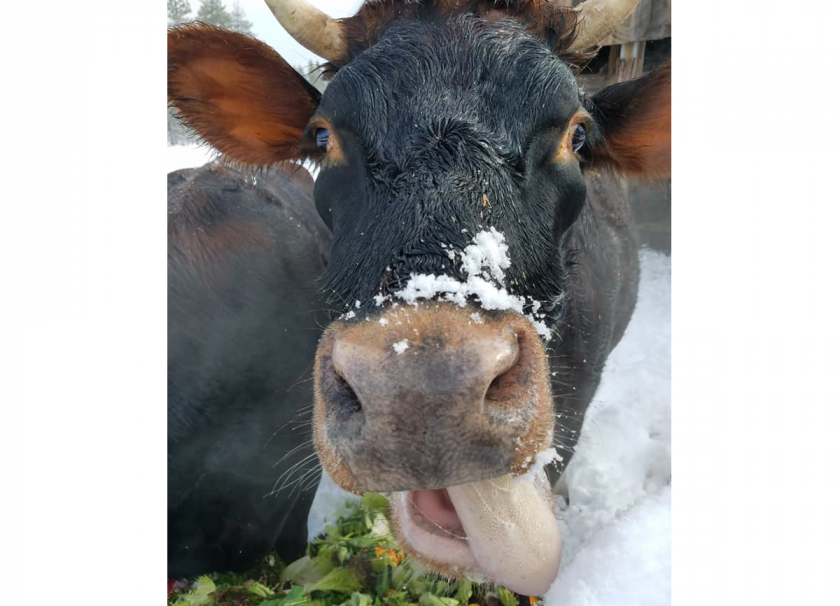
Food waste at the Co-op
By Rianna Koppel, Sustainability Coordinator
How many times in the past month have you reached back in the fridge to snack on some fresh strawberries only to discover… mold?! In the United States, 40% of food is wasted every year. Luckily, how we address food waste can have a major impact. According to Paul Hawkin’s Drawdown, reducing food waste is #3 on the list of best ways to reduce carbon dioxide emissions. At the Co-op, we use the EPA’s Food Recovery Hierarchy as a guide to bettering our own practices.

Meet Cooking Class Instructor, Gianaclis Caldwell
Get to know Gianaclis Caldwell ahead of her class, "Easy Mozzarella and Burratta - From Scratch!" on March 7. Gianaclis is the author of the award-winning book Mastering Artisan Cheesemaking and owner of Pholia Farm.
Tell us how your love of cooking (or cheese) and food began.

Wellness Secret Weapons
There are still plenty of colds and viruses making their rounds, and we want to help you better defend against them!
In January, we asked on social media what kind of secret weapons you use in the winter to stay healthy. We had a lot of responses, so we'll start with the All-Stars.
With your initial recommendations, our Wellness team reviewed the suggestions and picked the products with the highest quality standards and best feedback. Check those out below.

Meet class instructor, Joette Calabrese
This class instructor profile is connected to the February 27 free lecture, "You, Too, Can Beat the Flu!"
On an early Kolkata (Calcutta) morning, thick crowds gather outside the gates of the hospital while officials yell out "Brain tumor, kidney failure, cancer patients form a line here!” Hopeful patients, family members and caregivers arrange themselves by disease symptom.
What to do with all this citrus?!
So you grabbed a few too many extra oranges and grapefruits and lemons (and some finger limes, and some satsumas…), and rather than watch them go bad, we want to provide you with some ideas on how to reduce waste. You’ll also get to enjoy citrus in a lot of new ways!
There are many guides and recipes across the internet (like this one by our friends at Grow Forage Cook Ferment), so here are a few ideas to get your creative and citrus juices flowing.

Update from the General Manager: "Food for Paradise" campaign
Ashland Food Co-op's General Manager, Emile Amarotico, ends 2018 on a very uplifting note with a report back on the "Food for Paradise" donation campaign. Watch the video below, or read on for an extended written update.
Hello, this is Emile Amarotico, the general manager of Ashland Food Co-op with an update on the Co-op’s Food for Paradise initiative.
